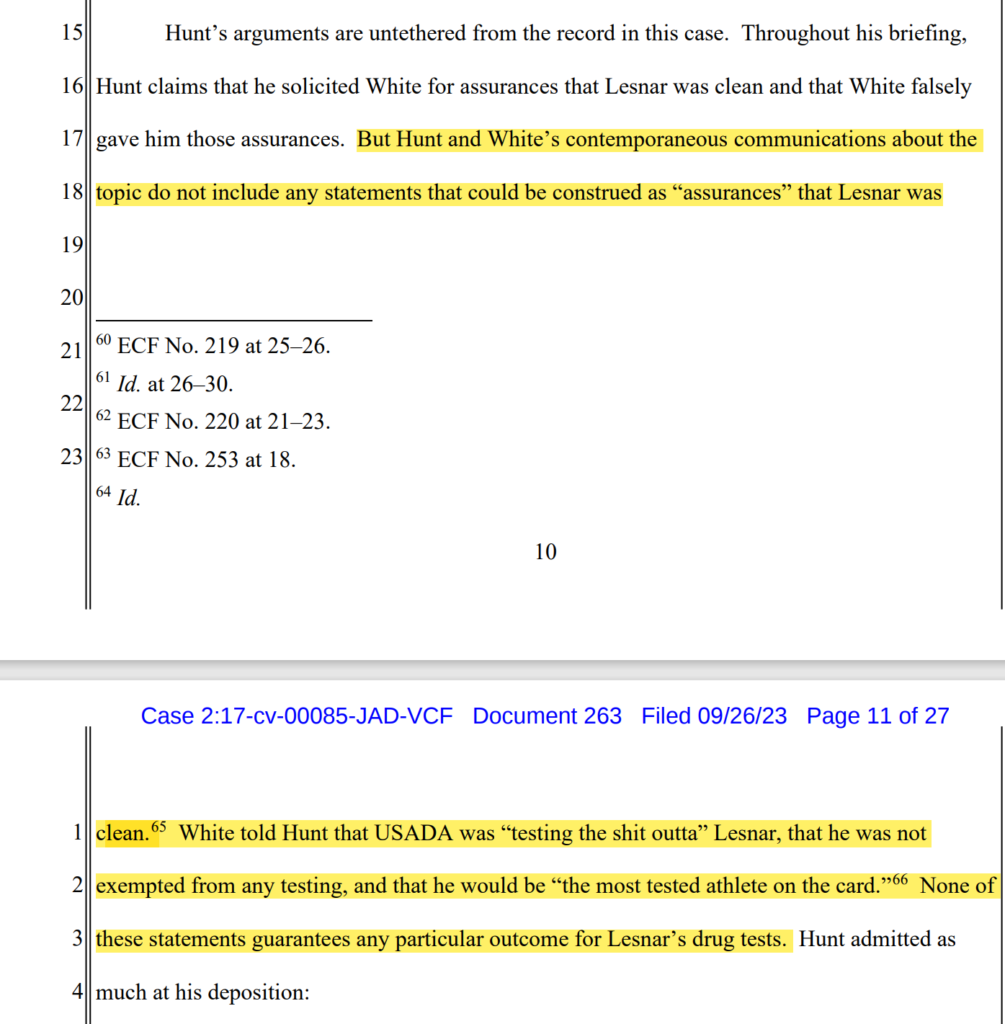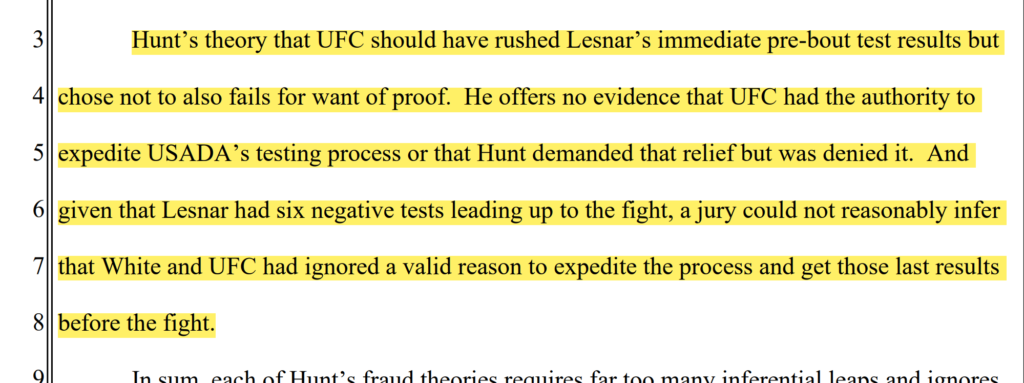Once again MMA Payout takes a look at the 10 biggest MMA stories of the year. This year, it will be easy to come up with the top 4 or 5 stories of the year as 2023 was actioned-packed with lawsuits, acquisitions, closures and a big departure.
But the number 10 story of the year is Mark Hunt’s lawsuit against the UFC, Dana White and Brock Lesnar came to end. After an appeals court sent back the case to the trial court where the trial judge ruled in favor of the defendants in its summary judgment motion. The Court highlighted Hunt’s evidence stating that it could not prove that the UFC and White could know that Lesnar was taking a banned substance. In its Order, the Court stated that text messages from White to Hunt could not be construed as “assurances” that Lesnar was free and clear of banned substances.

From our post this past September:
Hunt’s downfall came from the Court citing that everyone “testified [at their depositions] that they did not believe Lesnar was violating the anti-doping policy before the bout.” Moreover, Lesnar’s “first six tests were negative” and it would be hard to infer that the UFC or White fraudulent misrepresented the fact that Lesnar was being tested. According to the Order, the scant evidence Lesnar suggested that the former WWE wrestler was doping was a CNN article from 2007 reporting on steroid use of some wrestlers in the WWE.
Perhaps the most tenuous part of the Order was its conclusion that White and Lesnar did not intentionally delay their deal “to justify the four-month testing exemption.” You may recall that the Lesnar announcement was to be a surprise but the UFC had to negotiate with the WWE to obtain a release for Lesnar to fight at UFC 200 in July. Thus, when it was announced at UFC 199 in June he received a USADA testing exemption per the UFC Anti-Doping Policy. While it is plausible to believe that Lesnar and the UFC had plans for him to return at UFC 200 in July and that the WWE star wanted to wait to enter the USADA testing pool as long as he could, there is no evidence to show that this was due to his drug use. Moreover, the USADA tests were positive when he entered the pool. It was not until the tests in late June and July that came up positive for Lesnar. We also note that those tests were not expedited before UFC 200 and it was not until after the event did anyone know that he failed the drug tests. But, the Court addresses this theory in this snippet below.

As for the alleged battery claim against Lesnar, the Court indicated that at oral argument Hunt’s counsel had conceded the claim. Instead, at oral argument Hunt’s attorney pivoted to the issue that Lesnar cheated. The Court cited cases wherein the consent to participate in the sport was deemed withdrawn “if an offensive contact is not substantially the same as what was expected.” The two cases looked at situations where the injured person did not foresee the peril of the danger (found they exceeded expectations) that awaited them and therefore never consented to such risk. Here, Hunt knowingly entered the Octagon against Lesnar and there was nothing extraordinary about Lesnar’s actions which Hunt was not aware. Thus, the claim failed.
Regardless, the legal battle by Hunt was always an uphill battle. Despite the appeal, the real issue lay within what could be legally proven. Fraud was always hard to prove especially with the clean drug tests and with just the assurance that the UFC and White testing Lesnar once he entered the USADA pool While one can construe an argument that Hunt was led astray by the UFC and White about Lesnar, they could not wholly guarantee Lesnar would not use a banned substance. Moreover, the tests that were made available prior to UFC 200 showed that he was clea


Leave a Reply